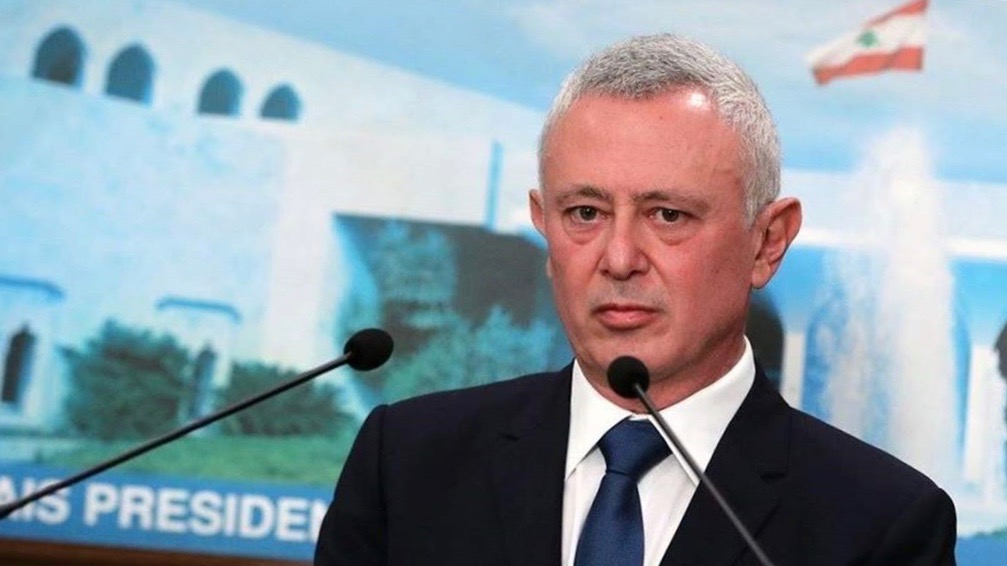The Jeddah declaration adopted at the end of the recently concluded 32nd summit of the League of Arab States urged “all Lebanese parties to dialogue in order to elect a president of the republic who fulfills the aspirations of the Lebanese people” and who can assure regular functioning of the constitutional institutions along with policies to tackle the economic crisis.
Lebanon is going through one of the worst economic crises faced by a country in the modern era. It has had no formal government for more than a year now. The elections to the Lebanese parliament were held last year on May 15, and it has been almost seven months since the term of President Michel Aoun expired in October. Political groups and parties elected to the parliament in the last elections were first unable to cobble up a majority, and after Aoun’s term ended, no cabinet could be formed without a president.
Though there were over a dozen attempts to elect a new president, no candidate was able to gather the two-thirds majority required to win the presidential election. In recent months however, the candidature of Suleiman Frangieh has gained traction. The process has been complicated as both regional and international players often have a decisive say in Lebanese politics. In the interim, a caretaker government headed by Najib Mikati has been ruling the country. But as Rania Khalek of BreakThrough News told Peoples Dispatch, the government has limited powers and it cannot take the serious and necessary decisions required to tackle the prolonged economic crisis.
A complicated process
In the last parliamentary elections in May 2022, no party or group was able to secure a majority. Out of the 128 seats in the parliament, the Hezbollah-led alliance got the support of over 62 MPs. It eventually also got the support of the Progressive Socialist Party (nine seats), and other smaller parties and independents, thus crossing the majority mark. However, it was unable to form the government as the term of the president ended and no new government could be sworn in.
According to the Lebanese constitution, the president of the country can only be a Maronite Christian. In order to get elected, a presidential candidate needs the support of at least two-thirds of the members of parliament. Parties based on sectarian divides with different factions divided on ideological lines represent Maronite Christians in Lebanon. This makes it difficult to mobilize a two-third majority behind any candidate.
Rania Khalek said that most Lebanese are accustomed to the long-drawn process of building consensus behind a presidential candidate across the parties and groups divided on sectarian and ideological lines.
The constitution also requires that a minimum of two-thirds of all elected parliament members be present for the election of the president. This adds to the difficulty of conducting the election.
Ever since the Hezbollah-led alliance proposed the name of the head of Marada movement, Suleiman Frangieh, for president, intense negotiations have taken place with all stakeholders, including all political groups and their regional and global backers.
Regional and global interventions and candidacy of Suleiman Frangieh
Elections in Lebanon are marked by foreign interventions, both regional and global, said Rania. She noted that after the weakening of Syrian influence, both due to historical reasons and the over decade-long war in the country, the process for presidential election has become even more lengthy as it requires “a regional consensus.”
Since Frangieh is considered close to Syria, Saudi Arabia and parties backed by it in Lebanon had been opposed to his candidacy. Most other regional and international players have also been opposed to what they term Syrian influence in Lebanon.
However, ever since the rapprochement between Saudi Arabia and Iran in March, and the normalization of Syria-Saudi Arabia relations earlier this month, chances of Frangieh emerging as a consensus candidate have increased.
France, the ex-colonial power which has generally been opposed to both Syria and Hezbollah, has reportedly asked Jebran Bassil, the head of the Free Patriotic Movement and a relative of former President Aoun, to back Frangieh’s candidacy, promising him the right to decide who will become the head of Lebanon’s Central Bank once Riad Salameh’s term ends in July.
Salameh has been the head of Lebanon’s Central Bank since 1993 and faces several corruption charges at home and abroad. Last week, he got an Interpol notice prompting the Lebanese government to ask him to resign from his post.
Even the European Union, without much explanation, has intervened and made formal threats of sanctions against MPs who threaten to boycott the parliamentary proceedings to elect the president. Smaller parties and individual MPs often resort to such bargaining tactics, which further lengthens the election process.
The eagerness of France and the EU to support Frangieh’s candidacy can be attributed to their desperation to protect financial interests in Lebanon which have been hampered by the prolonged political crisis and Frangieh’s record as someone who can be relied on despite his closeness to Syria and Hezbollah, said Rania.
Nevertheless, the election is far from over and there are disagreements that seemingly cannot be resolved domestically. This has led caretaker Prime Minister Mikati to make an appeal to Arab countries to “help Lebanon establish domestic dialogue” to form a government and resolve other issues.





